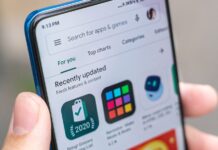A study of 2,000 global consumers released today by Mambu, the market-leading banking and financial services platform, revealed that both banked and unbanked individuals feel underserved, with 56% of banked customers claiming that there are other services they should be able to access.
“With more than 1.7 billion unbanked adults globally, the data that’s usually reported points us to emerging markets and geographical barriers to access; however, the gap in accessibility on a global level should not be ignored,” said Elliott Limb, Mambu’s Chief Customer Officer.
“Personalisation is going to be key for banks if they want to avoid being sidelined by new entrants that give more inclusivity and access. Banks need to be using the technology available to understand their consumers’ habits and in turn, anticipate their needs, with hyper-personalised recommendations and services.”
A gap in the road
While we’ve seen recent developments in technology bringing financial services to more people, the state of financial accessibility across several markets tells a different story. This was shown by the one in four (26%) unbanked who believe that financial institutions could help them get a bank account by providing more personalised financial advisory services.
The difference between banked and unbanked may seem pretty distinct, but our research found a financial accessibility gap amongst both groups, as well as a gap in understanding of financial accessibility. This proved true when we found that 81% of banked customers felt their situation would be better if they knew more about how finances worked, with more than half (58%) of unbanked customers feeling the same.
We’ve seen this come to light during the COVID-19 crisis, with 77% of respondents noting that the pandemic has exemplified the importance of being able to understand and access a wide range of financial services. However, we found that according to consumers, financial institutions aren’t taking the necessary steps to boost accessibility.
- More than half of unbanked customers (65%) were less than pleased with their financial situation.
- In the banked community, one in four (25%) are not happy with their current level of understanding about their finances and options available to them.
- Interestingly, we found that in the median and above wage brackets (equalling $63,000 and above per annum), nearly half (48%) stated they didn’t know how to open a bank account.
When we posed the question of who bears responsibility for financial education, a fair few — 56% in fact — feel that financial institutions should be responsible for educating consumers about their finances.
Banking the billions
There is a clear need for better awareness and education around financial services, and banks need to step into this role in order to serve their customers’ needs.
Currently both the banked (57%) and unbanked (36%) respondents are relying on the internet and/or online searches, not their banks, to find more financial information and to learn about their access to the right financial products.
- More than one in four (28%) of respondents stated they think banks should make it easier to understand how to open an account
- A further 26% of those that are unbanked believe that financial institutions can help them get a bank account by providing more personalised financial advisory services
- Our survey also found that 40% of unbanked consumers stated providing more specialised and mobile/web-based services would help them become banked
This is the second study of Mambu’s recently launched research series, Disruption Diaries. The series seeks to understand what customers think of the key trends driving the development of the financial services industry, in an effort to identify opportunities for banks and others. The full report on financial accessibility can be found here.



